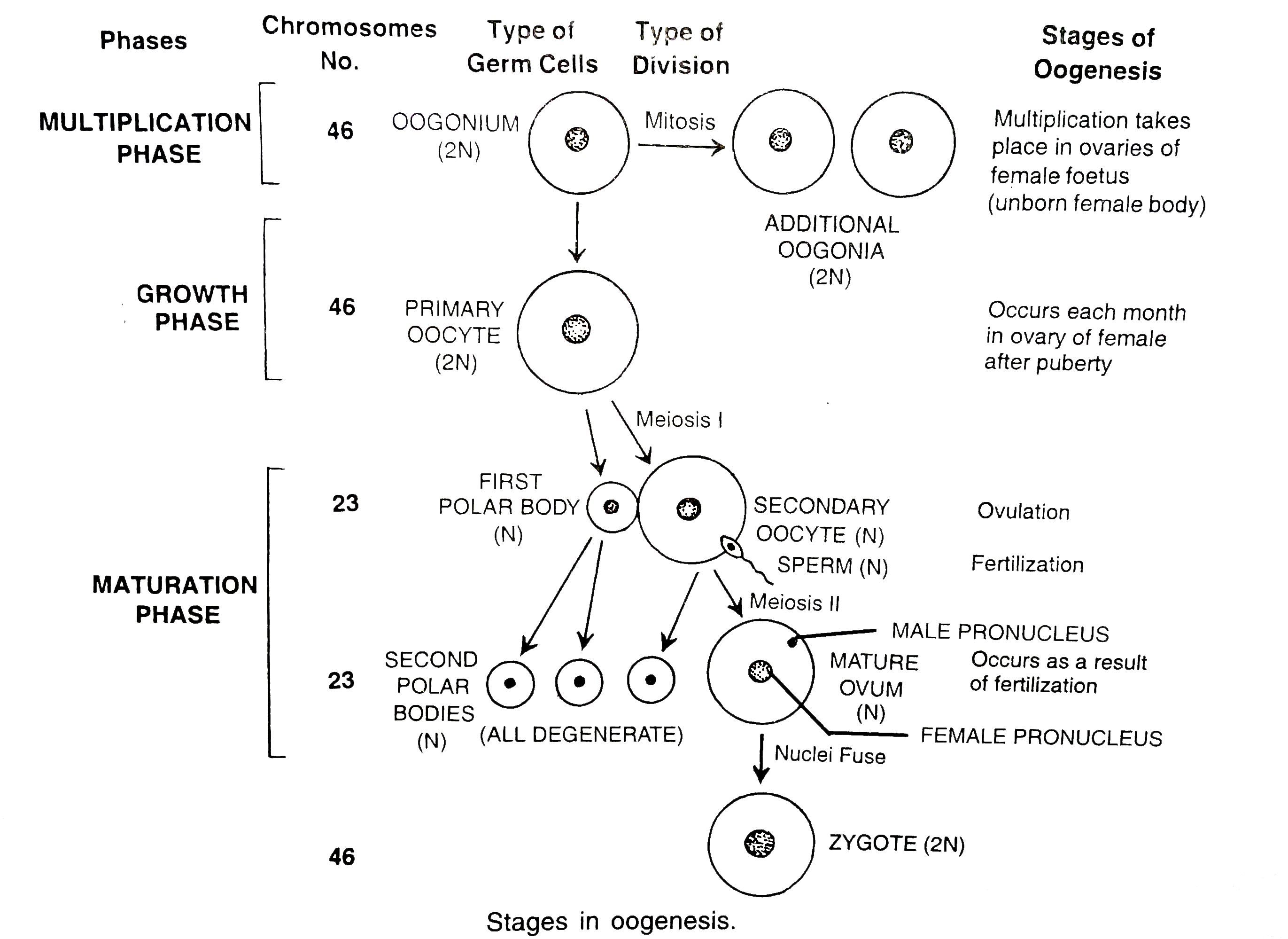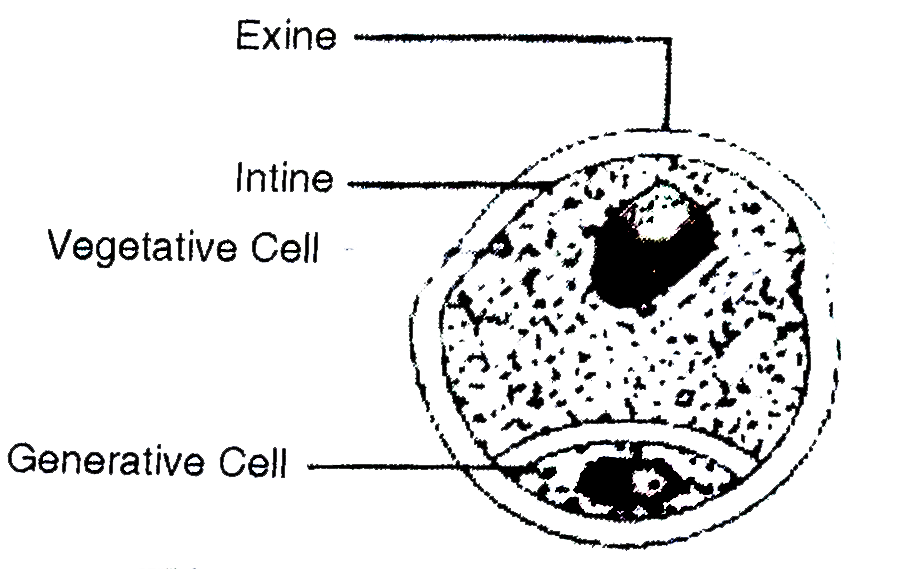When and where in the body is oogenesis completed?Solution in Bengali
Oogenesis. The process of formation of a mature female gamete ovum) called oogenesis. It occurs in the ovaries (female gonads). It consists of the phases: multiplication, growth and maturation.

(a) Multiplication phase. In the foetal development, certain cells in the germinal epithelium of the ovary of the foetus are larger than others. These cells divide by mitosis, producing a couple of million egg mother cells or oogonia in each ovary of the foetus. No more oogonia are formed or added after birth. The oogonia multiply by mitotic divisions forming the primary oocytes.
(b) Growth phase. This phase of the primary oocyte is very long. It may extend over many years. The oogonium grows into a large primary oocyte by taking food from the surrounding follicle cells. It happens after puberty.
(c) Maturation phase. Like a primary spermatocyte, each primary oocyte undergoes two maturation divisions, first meiotic and the second meiotic. The results of maturation divisions in oogenesis are, however, very different from those in spermatogenesis. In the first, meiotic division. the primary oocyte divides into two very unequal haploid daughter cells- a large secondary oocyte and a very small first polar body or polocyte In the second maturation division, the first polar body may divide to form two second polar bodies. The secondary oocyte again divides into unequal daughter cells, a large cod and a very small second polar body. The ootid grows into a functional haploid ovum. Thus from one oogonium, one ovum and three polar bodies are formed. The ovum, is the actual female gamete. The polar bodies take no part in reproduction and hence, soon degenerate In human beings, ovum is released from the ovary in the secondary oocyte stage. The maturation of secondary oocyte is completed in the mother's oviduct Fallopian tube usually after the sperm has entered the secondary oocyte for fertilization
Topper's Solved these Questions
- REPRODUCTIONBOOK - TRUEMAN BIOLOGYCHAPTER - REPRODUCTIONEXERCISE - SECTION -C
22 Videos
- Protista BOOK - TRUEMAN BIOLOGYCHAPTER - Protista EXERCISE - ASSERTION AND REASON
6 Videos
- Reproduction In OrganismsBOOK - TRUEMAN BIOLOGYCHAPTER - Reproduction In OrganismsEXERCISE - MULTIPLE CHOICE QUESTION
131 Videos
Similar Questions
Draw a labelled diagram of the sectional view of a mature pollen grain of angiosperms. Explain the function of generative cell and vegetative cell

View Solution[A] : Contractile vacuoles in protists show systole and diastole .
[R] : Contractile vacuoles help in osmoregulation .
View SolutionRegeneration was first discovered in Hydra by
View SolutionThe first meiotic division during oogenesis is completed at the stage of
View SolutionExplain the different stages of oogenesis in human starting from life till its completion. When and where in the body is oogenesis completed?
View SolutionThe first meiotic division during oogenesis is completed at the stage of
View Solutionएक पूर्णत: कृष्ण (black) पिण्ड है, जहाँ
View SolutionAt what stage of life is oogenesis initiated in a human female? When does the oocyte complete oogenesis?
View SolutionThe number of polar bodies formed in frog during oogenesis is :
View SolutionAt what stage of life is oogenesis initiated in a human female? When does the oocyte complete oogenesis?
View SolutionNamethe organ where oogenesis gets completed inhuman females.
View SolutionSecond meiotic division during oogenesis is completed in
View SolutionExplain the different stages of oogenesis in human starting from life till its completion. When and where in the body is oogenesis completed?
View SolutionAt which stage of life is oogenesis initiated in human female? When does the oocyte complete oogenesis?
View SolutionWhat promotes completion of second meiotic division in oogenesis?
View SolutionFill in the blanks In Oogenesis, the number of polar bodies released are _________
View Solution
